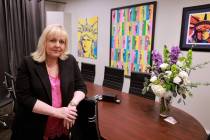Team effort helps ensure patients keep their limbs
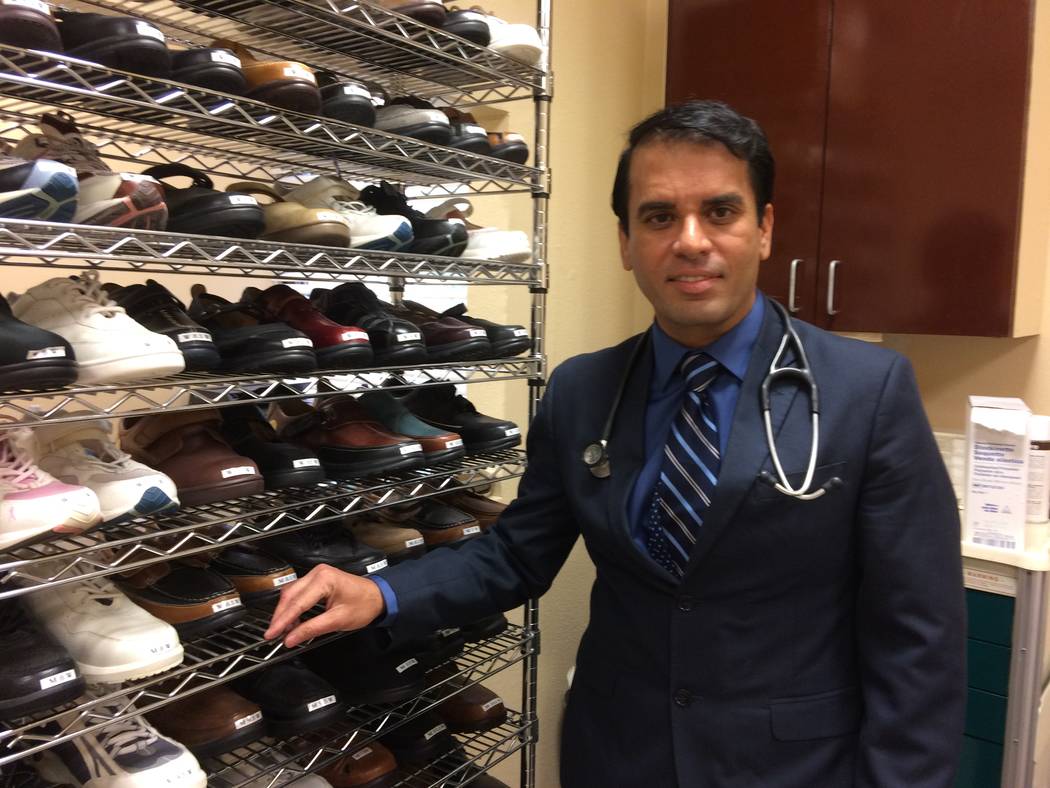
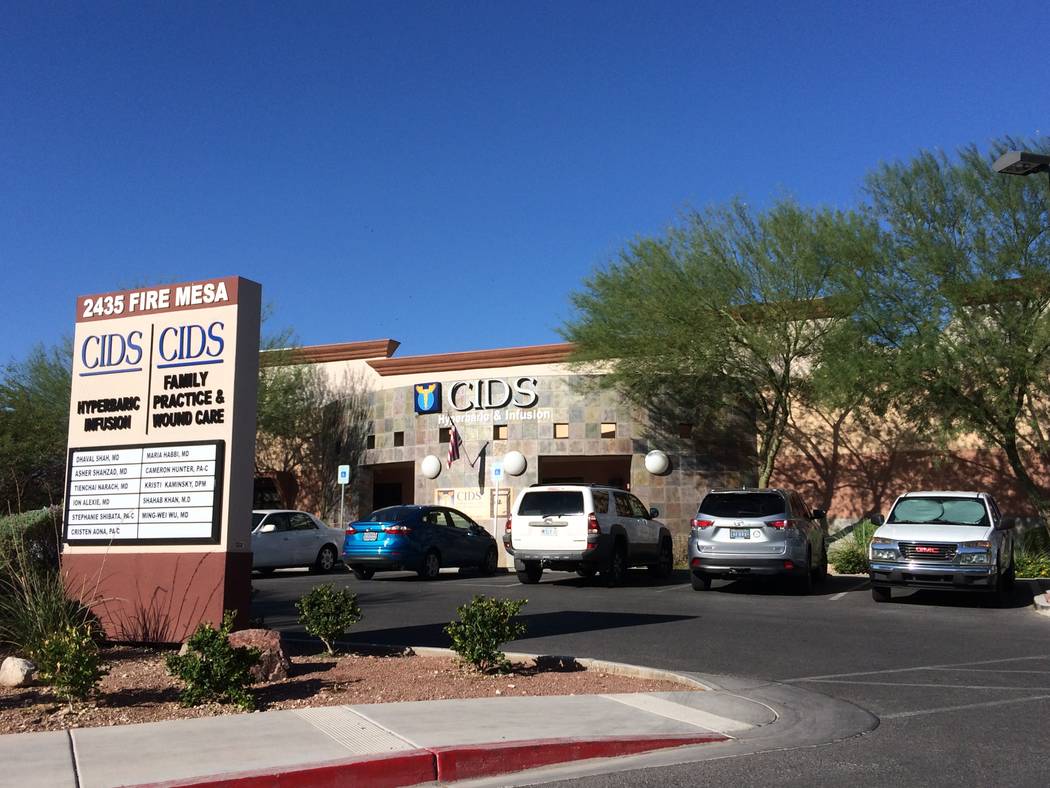
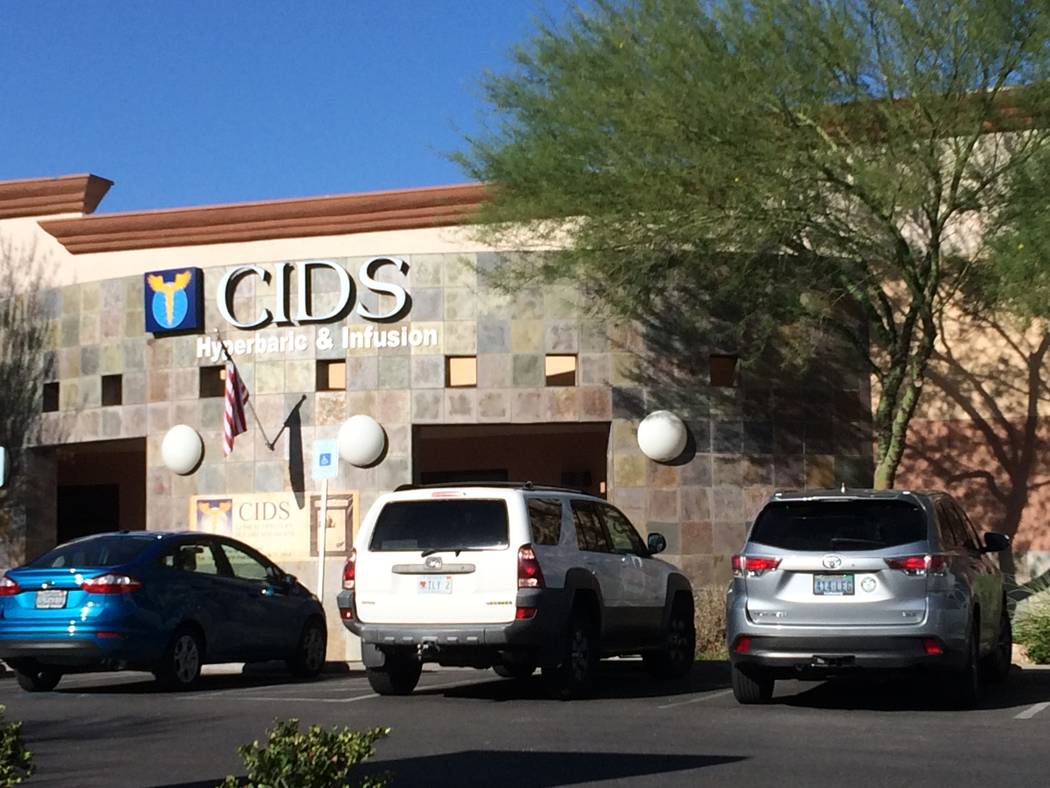

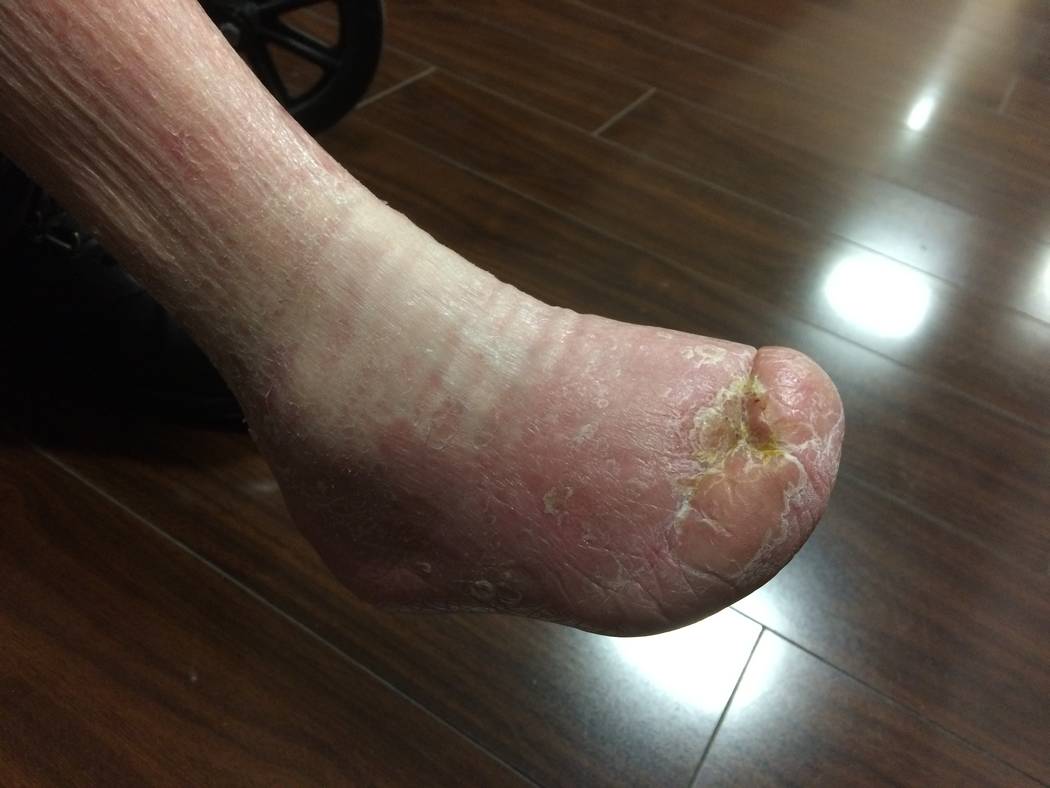
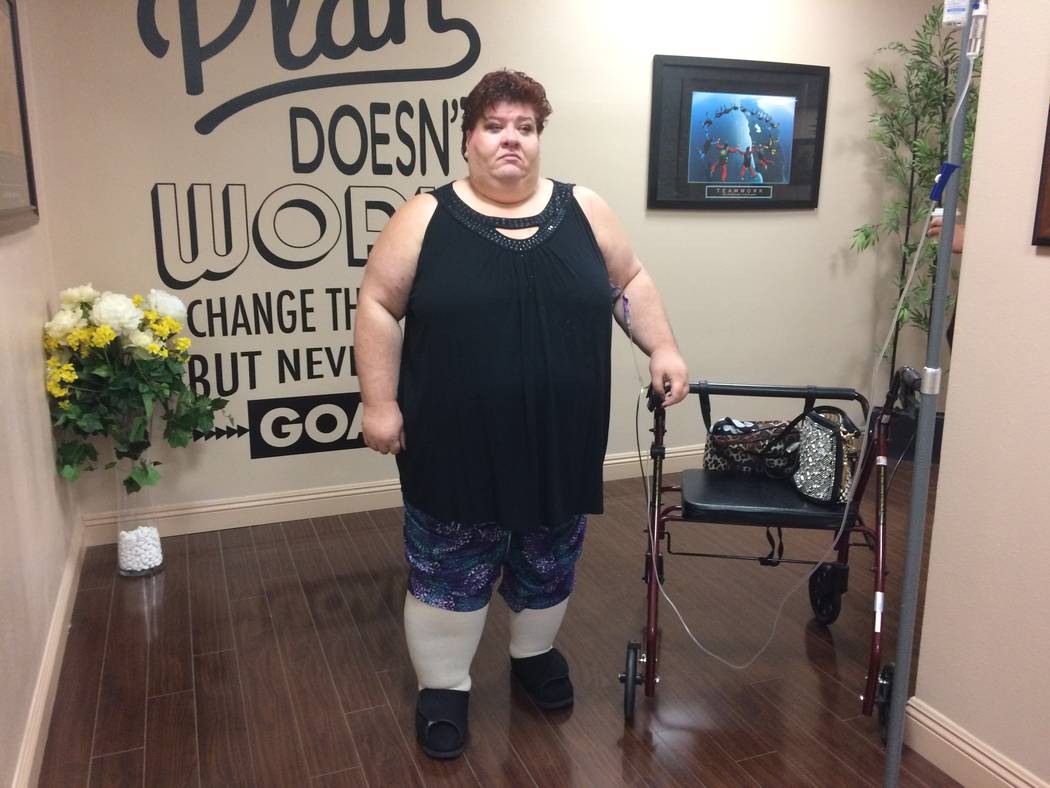
The word salvage usually refers to cars. At CIDS, it refers to limbs — most often, a leg.
The Summerlin area’s CIDS, which stands for Clinical Infectious Diseases Specialists, uses a team approach to ensure people keep their legs. The center, at 2435 Fire Mesa St., Suite 120, reportedly sees about 200 patients a day.
“Usually, the patient has to go to five different places to receive the care,” said founder Dr. Dhaval Shah , whose specialty is infectious disease. “What we’ve done is we’ve pulled all these disciplines together under one roof so everything gets done in one place.”
Besides various types of doctors, there are an on-site compounding lab, a hyperbaric unit, rehabilitation and physical therapy on-site.
“Infections are time-sensitive,” Shah said. “The patient has a positive culture and if, within four hours, the patent’s problem is not addressed, that can, many times, be life-threatening. So the minute we find out the patient’s (situation), within two hours, they get started on the appropriate antibody.”
Carol Ann Haddon, 74, said she wishes she’d found CIDS sooner. She has diabetes. In 2016, she was in hospital for 21 days and underwent a quadruple bypass surgery. Haddon got gangrene on the big toe of her right foot.
“No one bothered to look at my feet,” she said. “Then it turned black. My primary physician said, ‘My Lord, Carol Ann, this is gangrene.’… I didn’t know I could die from it.”
She ended up losing all her toes on that foot. That was April 2016. By fall 2017, the wound had only just healed.
“With all the doctors working together here,” Haddon said, “it was possible for me to look forward and be positive. It will work out the way the Lord intended.”
Another patient, Jeana Leavitt, 48, can only move about with a walker. In June 2015, she developed an infection on her right calf.
“It started as just a scratch and I didn’t think anything of it,” she said. “… I picked up some type of bacteria.”
By December, it was worse, sending her to the emergency room. There, it was discovered that her blood had become infected. Her mother, Dawn Brown, began doing research, which led to CIDS and meeting Kristi Kaminsky, a podiatrist.
“When I went to wound care,” Leavitt said, “I’d see people there. One day, they had both their legs, and the next, they’d be missing half of their limbs.”
The infection caused nerve damage in her right leg, resulting in drop foot. It means she cannot drive. It affects her balance and walking ability. Leavitt moved in with her parents, who care for her around the clock.
“It’s put me in a wheelchair,” she said of the infection. “It’s traumatizing to go from being able to get in my truck and go anywhere I want, to having to rely on my (parents) for everything.”
Dr. Shahab Khan, a vascular specialist, does hospital procedures on people with blocked arteries. A laser catheter can blast the blockage, or a rotating blade that cuts the plaque and extracts it can be used to remove it.
“We are basically plumbers, opening a blocked pipe,” he said. “My role is to improve blood flow to the leg. These guys do wound care and antibiotics.”
Such procedures can remove as much as 90 percent of the blockage.
Dr. Maria Habbi, specializes in family practice and primary care. he is the gatekeeper for patients who come to CIDS.
“I screen them and look for the red flags,” she said. “What is their blood pressure? Even hypertension if it’s uncontrolled can cause damage. Family history can be a red flag. Obesity, that’s red flag. These things are telling me they’re at risk for diabetes, hypertension, high cholesterol. all that ‘s going to change their vasculature.”
The trickiest part is getting people to be compliant, said Kristi Kaminsky, a podiatrist at CIDS. Those who have a wound on the bottom of their foot, for example, need to stay off it and let it heal.
”People don’t realize that when you have a wound like that, that you’re at risk for losing your leg,” Kaminsky said.
Contact Jan Hogan at jhogan@reviewjournal.com or 702-387-2949.
By the numbers
Mortality rates after amputation are sobering. As many as 20 percent die within 30 days of the operation and 50 percent within five years.
U.K. study by Krishnan, Nash and Baker













